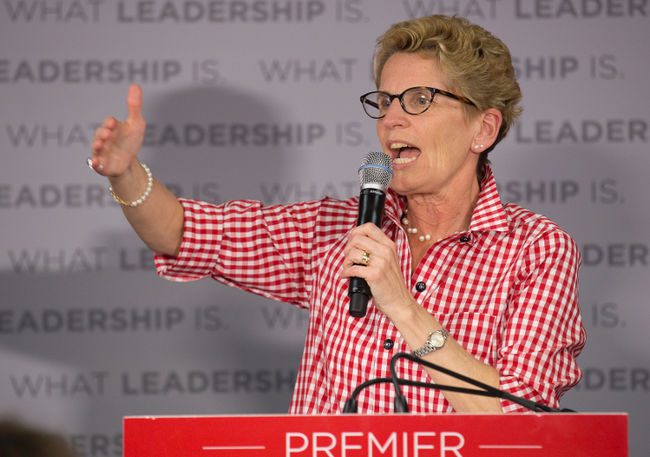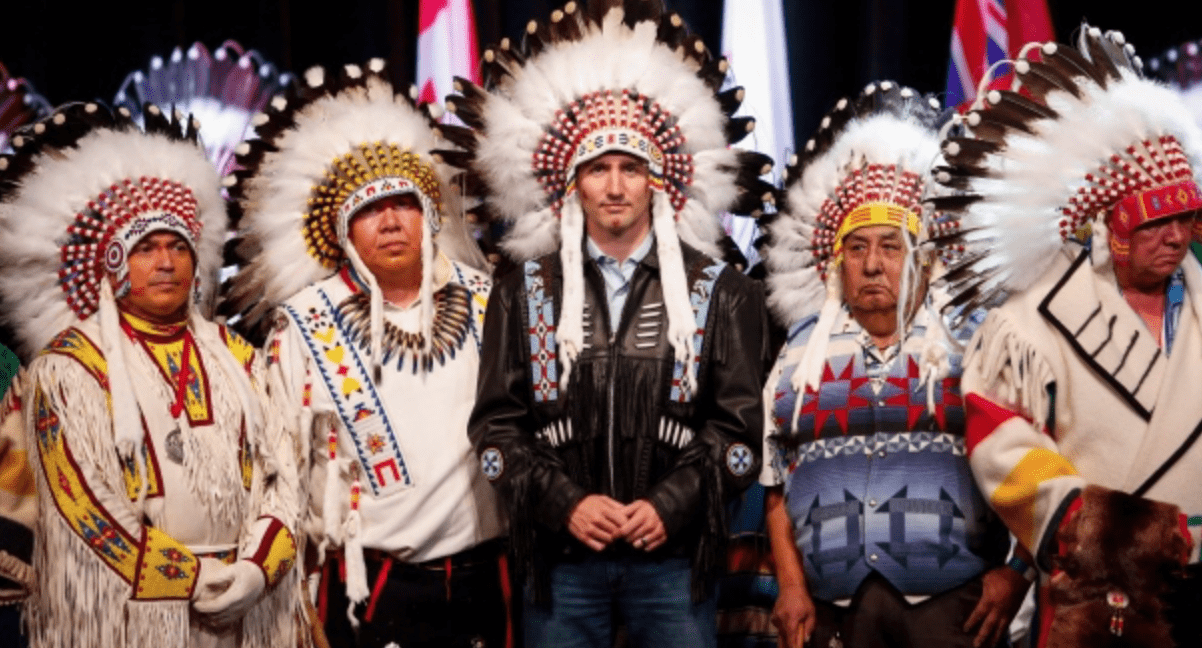Over the weekend, the Ontario Liberals held a convention to determine the rules for their forthcoming leadership race. Two successive votes were held in order to change the rules from a delegated convention to a one-member-one-vote system, and both failed, the latter vote getting 57 percent approval but shy of the 66 percent threshold needed to change the rules. While this does mean that they have dodged a bullet in terms of not adopting a system that is the most corrosive to our system of politics, it's clear from the rhetoric being deployed by MPPs and party luminaries that they haven't learned their lesson, and that they are keen to keep heading on a self-destructive path. Worse, the fact that there are those in the party who are trying to draft "star candidates" like astronaut Chris Hadfield shows that nobody in the party has learned a single lesson about what is wrong with politics these days.
Judging from the reporting from the convention, it appears that the recent Progressive Conservative leadership contests in Ontario that resulted in the wins by both Patrick Brown and Doug Ford were enough to spook some of the Liberal delegates into not backing OMOV, which shows that at least some of the party membership has thought twice about the allure of OMOV. After all, as OMOV systems allow, Brown was able to mobilize "supporters" across the province that had no particular loyalty to the party or its machinery that Christine Elliott was not able to, and essentially rented a voter base to win him the leadership. Likewise, the particular rules of the PCs' weighted OMOV system allowed Doug Ford to win the leadership in his contest without winning the popular vote because of how the weighting worked (not to mention the other problems with ballots that Elliott, also the challenger in that contest, was prepared to challenge in court before she backed down).
Both Brown and Ford were outsiders to the party, and neither had a seat when they were made leader Brown still holding his federal seat at the time. That Brown and Ford were essentially interlopers to the party could seem like both a feature and a bug of the system feature in that people convince themselves that this allows for fresh blood and a fresh vision for the party to rally around, and bug in that it can completely undermine the party's established policy direction as voted on by its membership. Because OMOV encourages leadership cults, it insidiously hollows out the party so that the leader becomes the party, and MPs/MPPs are expected to rally around them because they supposedly won the "democratic legitimacy" of the membership and if MPs/MPPs dare to question the leader or the process, they are derided as "elites" trying to usurp the place of the "grassroots" membership.
But the problem is that it's not really a grassroots system. OMOV masquerades as such, but is really more an exercise in astroturfing the term applied when highly organized campaigns use the trappings of grassroots democracy to manipulate the process. That's why their leadership membership base is so ephemeral because they are essentially rented by the campaign to get their leader elected, but these are not people who stick around afterward. They disappear into the aether, while the actual grassroots party members, who volunteer and spend their time doing the hard work of debating policy resolutions, and performing the necessary accountability function at the ground level, are essentially hung out to dry. The policy work they spent their time on has become meaningless because now leadership candidates are expected to come in with policy platforms as part of the process, the actual grassroots be damned.
And then come the excuses, with proponents citing that it's more "modern," or more "democratic," or that it somehow gives everyone an "equal voice at the table." These are all false, and more to the point, what they do is remove accountability from the system. Leadership reviews are not accountability because they can be gamed in the same way as OMOV leadership contests (look at the experiences of Greg Selinger in Manitoba, or Jeremy Corbyn in the UK), and an ephemeral and nebulous membership body that elected a leader cannot be expected to hold him or her to account after all, when you're accountable to everyone, you're accountable to no one.
The other problem we now face in trying to dissuade parties from this terrible system is the allure of the database signing up as many names as possible to participate in these sham "democratic" processes is the real desired outcome, because parties believe that these databases are what wins them elections. It was the goal of the federal Liberals when they did away with their membership fees and allowed for "supporters" to vote for their leadership aside from exacerbating the problems of OMOV, it was all about populating their voter identification database, because they were years behind the Conservatives in that regard. For a party in rebuilding mode like the Ontario Liberals, this is a siren song that it seems only a just enough members were able to shake off before it lured the party onto the rocks.
We as Canadians need to come to grips with the fact that our leadership systems are broken beyond repair, and OMOV is not going to solve the problems in our system, because it is the problem. And no, the Ontario Liberals' status-quo of a delegated convention is not much better it still keeps the accountability away from the leader, and it still creates leadership cults. As much as people don't want to hear it, the first step in fixing what's wrong with our politics is to return to having the caucus choose the leader. It's not to find a celebrity or messiah for people to flock to it's about restoring accountability, and returning the power to MPs/MPPs and to grassroots members. That won't happen under OMOV.
Photo Credit: Toronto Star








